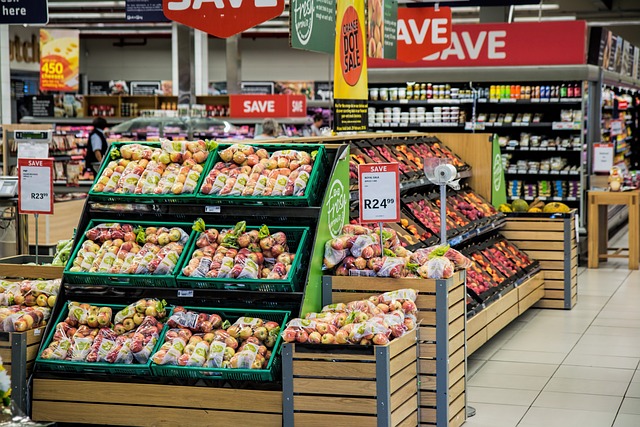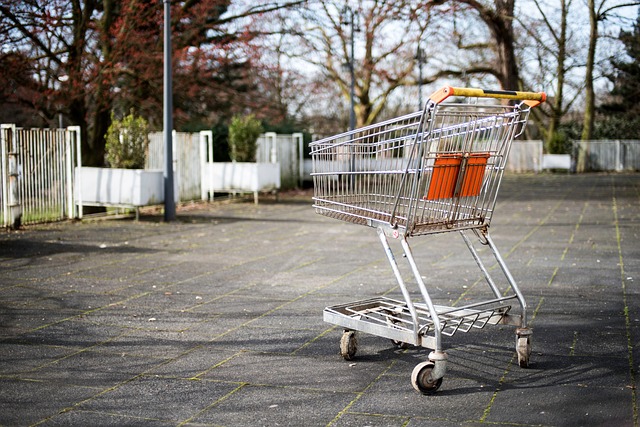Karachi's grocery market is a vibrant microcosm of Pakistan's economic vitality, influenced by seasonal trends, consumer choices, and global economic shifts. These factors dramatically alter the availability and cost of goods, leading to strategic stockpiling for importers and retailers. While the city's role as a key trading center offers advantages like diversified product lines, it also presents challenges like supply chain disruptions and price fluctuations. Local businesses adapt by optimizing supply chains, leveraging technology, adopting eco-friendly practices, and forming partnerships with local farmers, ensuring Karachi's grocery landscape remains robust and responsive to economic changes.
In the dynamic city of Karachi, economic shifts profoundly influence local grocery stocks, creating a ripple effect across markets. This article delves into the intricate relationship between economic transformations and the availability of groceries in Karachi’s vibrant retail landscape. We explore how these changes impact retailers and consumers alike, offering insights into adapting strategies for sustainable distribution amidst shifting dynamics. By understanding Karachi’s unique grocery market dynamics, we can better navigate the challenges and opportunities presented by economic fluctuations.
- Understanding Karachi's Grocery Market Dynamics
- Economic Shifts: A Catalyst for Change in Stock Patterns
- Impact on Local Retailers and Consumers
- Adapting Strategies for Sustainable Grocery Distribution
Understanding Karachi's Grocery Market Dynamics

Karachi, as Pakistan’s economic powerhouse and a bustling metropolis, boasts a dynamic grocery market that reflects its diverse population and ever-changing economic landscape. The city’s grocery stocks are influenced by various factors, including seasonal fluctuations, consumer preferences, and, most notably, economic shifts. These changes can dramatically impact the availability and pricing of goods, especially for perishable items like fresh produce and dairy products. For instance, during periods of economic instability, Karachi residents tend to stock up on staples, leading to increased demand and potential shortages of certain items.
The market dynamics in Karachi are further complicated by its role as a major trading hub. Economic shifts can bring both opportunities and challenges. Importers and retailers may capitalize on new trade agreements, diversifying their product offerings. However, sudden economic downturns or changes in global market prices can disrupt supply chains, affecting local grocery availability and contributing to price volatility. Understanding these intricate relationships is crucial for both businesses and consumers navigating Karachi’s ever-evolving grocery market.
Economic Shifts: A Catalyst for Change in Stock Patterns

Economic shifts play a pivotal role in shaping the dynamic landscape of local grocery stocks, particularly in bustling metropolises like Karachi. These changes can significantly influence consumer behavior and market trends, leading to notable alterations in stock patterns. For instance, economic downturns often prompt consumers to shift towards more affordable and essential groceries, impacting the demand for certain products. Conversely, periods of economic growth may drive a surge in demand for higher-end or specialized items, causing fluctuations in local stock availability.
In Karachi, where diverse cultural influences meet, economic shifts can be further amplified by regional preferences and seasonal variations. Local grocery stores must adapt swiftly to these changes, ensuring they cater to evolving consumer needs. This adaptability is crucial for maintaining customer loyalty and fostering a vibrant local economy, especially as the city navigates the complexities of the global market.
Impact on Local Retailers and Consumers

In Karachi, like many cities around the world, economic shifts can significantly impact local grocery stocks and the retail landscape. When economic conditions fluctuate, consumers often alter their purchasing behaviors, leading to changes in demand for various goods. Local retailers, especially small businesses, are particularly vulnerable during such periods as they struggle to adapt to shifting market trends and competitive pressures from larger chains. This can result in stockouts of certain items or even closure if they fail to manage their inventory efficiently amidst economic uncertainty.
On the other hand, consumers in Karachi benefit from a diverse range of grocery options, which can become more accessible during economic shifts. As local retailers adjust to changing market dynamics, they might offer promotional prices or introduce new products to attract price-conscious shoppers. This not only benefits consumers with better deals but also encourages competition, ensuring that quality and variety remain high in the local grocery market.
Adapting Strategies for Sustainable Grocery Distribution

In Karachi, as economic shifts occur, local grocery distributors must adapt their strategies for sustainable distribution. This involves a multifaceted approach, beginning with supply chain optimization to mitigate costs and ensure efficient delivery. By leveraging technology for real-time inventory management and adopting eco-friendly packaging, distributors can reduce waste while meeting consumer demands.
Furthermore, building partnerships with local farmers and producers not only stabilizes the supply of fresh produce but also supports the city’s agricultural economy. Diversifying product offerings to cater to changing dietary preferences and cultural trends is another key strategy. This adaptability ensures that Karachi’s grocery distribution network remains robust and responsive to the dynamic economic landscape.
The economic shifts analyzed in this article have significantly impacted Karachi’s grocery market dynamics, leading to notable changes in stock patterns. These fluctuations have had a ripple effect on local retailers and consumers alike, underscoring the need for adaptive strategies. Moving forward, sustainable grocery distribution in Karachi requires a nuanced approach that balances market responsiveness with long-term viability. By embracing innovative solutions and fostering collaboration, stakeholders can navigate these changing times effectively, ensuring a resilient food supply network for the vibrant city.
